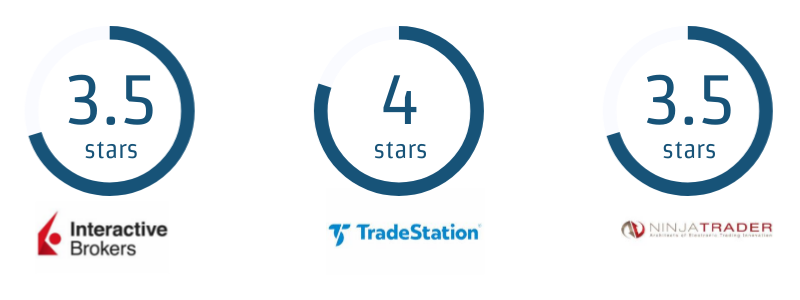
There are several types of forex leverage. You can take on larger trades with ten-to-one leverage and get exposure to more notional value. This is like paying 10% of a house's value and having access to the entire home. Your broker will offer forex leverage to you. The amount you are allowed to borrow will depend on where you live. The type of trading and policies of your broker will affect the amount of leverage that you are allowed.
Limitations of leverage
When traders are deciding whether to use forex lean, the most frequent question they ask is, "Is my limit on how much I can borrow?" The circumstances will determine the answer. A trader can usually borrow 100 times their initial deposit. Traders need to remember that high leverage can carry high levels of risk as any move against a trading position can wipe out all investment.

Margin trading
The most important thing for beginners in foreign currency exchange markets is to understand forex leverage. Forex markets are always in motion. It is therefore important to be able to take advantage of news and currency developments to increase your profits. A forex trader must first understand how the market works, including the underlying economic conditions, geopolitical tensions, and central bank policy decisions.
Maximum leverage
Forex leverage refers to the amount of risk you are willing to take with a currency pair. Your account capital will determine how much leverage you can use to trade forex. Experts suggest that 1:200 to 1:100 is the ideal leverage. This means you can have $50K control if you have $500. This leverage allows you to only lose 2% on your account equity in the event that your position becomes negative.
Maximum leverage
You should use maximum forex leverage if you're new to trading. This leverage will give you more profits. It can also make your trades stop. If you are not sure about your strategy, it is best to stick with a low level of leverage such as 1:000 unless you are comfortable taking on risk. Maximizing Forex leverage is not a good idea as it will likely lead to losses which are not worth it.
Trading at a low leverage
Trades with low leverage are free from transaction costs. You can open multiple trades in different markets without worrying about potentially widening spreads. A low leverage account allows you to make objective choices without letting emotions drive your decisions. This allows you to make fewer mistakes and reduce your risk. These are the three main benefits of trading low leverage:

High leverage is a good way to trade
Brokers may offer high leverage trading. Some brokers have more strict licensing requirements than others. These brokers can offer leverage levels above 1:500. This level is considered high. Trade only with high-leverage, well-regulated brokers to avoid putting your money at risk. Check that the broker you're considering has been approved by the major European financial regulators.
FAQ
Why is it important to have marketable securities?
The main purpose of an investment company is to provide investors with income from investments. This is done by investing in different types of financial instruments, such as bonds and stocks. These securities have attractive characteristics that investors will find appealing. These securities may be considered safe as they are backed fully by the faith and credit of their issuer. They pay dividends, interest or both and offer growth potential and/or tax advantages.
A security's "marketability" is its most important attribute. This refers primarily to whether the security can be traded on a stock exchange. You cannot buy and sell securities that aren't marketable freely. Instead, you must have them purchased through a broker who charges a commission.
Marketable securities include government and corporate bonds, preferred stocks, common stocks, convertible debentures, unit trusts, real estate investment trusts, money market funds, and exchange-traded funds.
Investment companies invest in these securities because they believe they will generate higher profits than if they invested in more risky securities like equities (shares).
What is a fund mutual?
Mutual funds can be described as pools of money that invest in securities. Mutual funds provide diversification, so all types of investments can be represented in the pool. This reduces the risk.
Professional managers oversee the investment decisions of mutual funds. Some mutual funds allow investors to manage their portfolios.
Most people choose mutual funds over individual stocks because they are easier to understand and less risky.
How Share Prices Are Set?
Investors decide the share price. They are looking to return their investment. They want to earn money for the company. They then buy shares at a specified price. The investor will make more profit if shares go up. If the share value falls, the investor loses his money.
An investor's main goal is to make the most money possible. This is why they invest into companies. This allows them to make a lot of money.
What is security in a stock?
Security is an investment instrument whose worth depends on another company. It may be issued either by a corporation (e.g. stocks), government (e.g. bond), or any other entity (e.g. preferred stock). The issuer can promise to pay dividends or repay creditors any debts owed, and to return capital to investors in the event that the underlying assets lose value.
Statistics
- Even if you find talent for trading stocks, allocating more than 10% of your portfolio to an individual stock can expose your savings to too much volatility. (nerdwallet.com)
- The S&P 500 has grown about 10.5% per year since its establishment in the 1920s. (investopedia.com)
- For instance, an individual or entity that owns 100,000 shares of a company with one million outstanding shares would have a 10% ownership stake. (investopedia.com)
- US resident who opens a new IBKR Pro individual or joint account receives a 0.25% rate reduction on margin loans. (nerdwallet.com)
External Links
How To
How can I invest into bonds?
An investment fund is called a bond. You will be paid back at regular intervals despite low interest rates. This way, you make money from them over time.
There are many options for investing in bonds.
-
Directly buying individual bonds
-
Buy shares in a bond fund
-
Investing through an investment bank or broker
-
Investing via a financial institution
-
Investing through a Pension Plan
-
Invest directly through a stockbroker.
-
Investing in a mutual-fund.
-
Investing in unit trusts
-
Investing with a life insurance policy
-
Investing via a private equity fund
-
Investing using an index-linked funds
-
Investing through a Hedge Fund